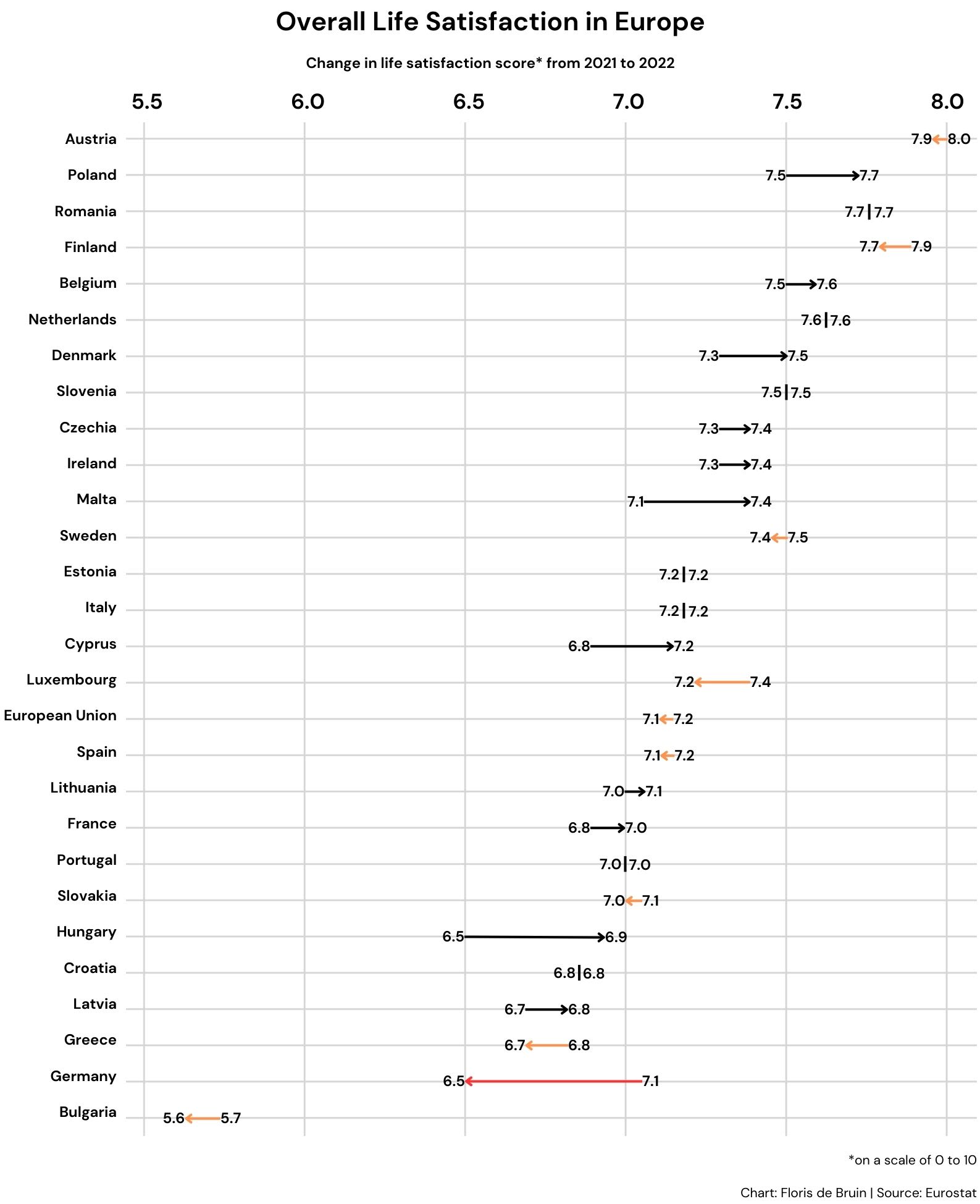Germany ranks second from bottom in European happiness index

Germans scored low on the EU happiness index | Photo by Maheshkumar Painam on Unsplash
Germans scored low on the EU happiness index | Photo by Maheshkumar Painam on Unsplash
Germans were among the unhappiest people in the European Union, according to new data.
Research by Eurostat, the EU’s statistics agency, asked Europeans in 2022 to rate their satisfaction with life on a scale from 0, very dissatisfied, to 10, very satisfied.
Germany ranked second from bottom in life satisfaction with 6.5 points among 27 countries, ahead only of Bulgaria at 5.6 and behind Greece at 6.7.
Life satisfaction was highest in Austria with 7.9 points, with Finland, Poland, and Romania each at 7.7 in joint-second place.
Europeans tended to be satisfied with their life in general, reporting an average of 7.1 points, only 0.1 less than the previous year.
Apart from Bulgaria, the average satisfaction level was over 6.

People in northern and western parts of the EU tended to be more satisfied with their lives than people in the Baltic countries, the Mediterranean area, and eastern parts of the EU.
Germans experienced the largest drop in happiness levels across Europe at around 8pc, falling from 7.1 points in 2021 to 6.5 points in 2022, below the EU average.
Hungary and Cyprus leapfrogged Germany in the rankings, recording the greatest rise at around 6pc from 6.5 to 6.9 and 6.8 to 7.2 from 2021 to 2022 respectively.
Eurostat did not specify why certain countries like Germany dropped in ranking but said life satisfaction may be influenced by many factors such as age, level of education, family, and financial situation.
Germany’s status as one of the world’s wealthiest and most prosperous countries makes its score fascinating, as high income and educational attainment usually have a positive influence on life satisfaction according to Eurostat.
Eurostat said: “It is interesting to note that some countries associated with low levels of income in the recent past (as indicated for example by PPP [purchasing power parities are indicators of price level differences across countries] adjusted GDP per capita), such as Romania and Poland, are among the countries where life satisfaction is highest – showing the complexity of the relation between subjective well-being and economic welfare.”
The figures must be understood in “a comparative European context” and is “shaped by societal structures, norms and cultural backgrounds, which may vary between countries,” the statistics agency added.
